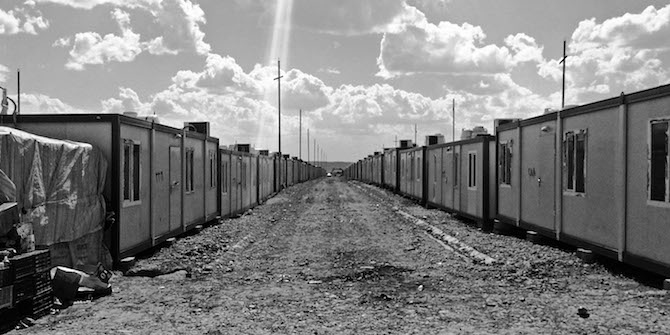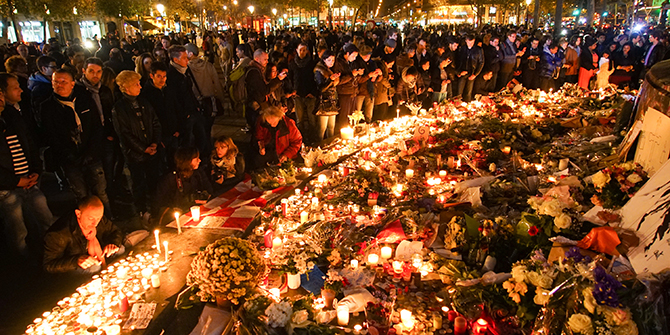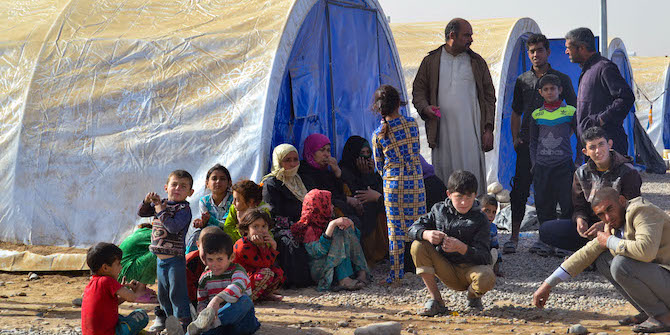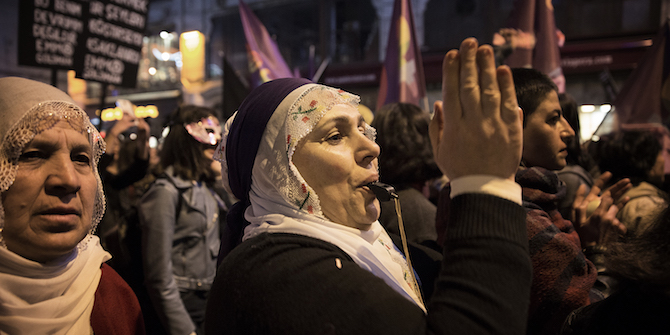by Zeynep Kaya

Displacement is a major humanitarian, human rights and security issue globally. As of June 2017, 65.5 million people were displaced worldwide. UNDP found that the global average length of displacement is 17 years, indicating the protracted nature of displacement and underlying the importance of introducing durable solutions in terms of livelihoods, education and housing. This is particularly crucial in the Middle East, a region that has experienced cycles of conflict and violence, and consequent layers of displacement, for decades.
Displacement is a complex process and impacts individuals, societies and institutions in multiple and unpredictable ways. It creates emergency challenges and long-term problems for communities in terms of security and safety, livelihood, access to services and education, and can create tensions between host and displaced communities. It requires effective coordination within and between national and international actors. Displacement also both exacerbates and creates new vulnerabilities for individuals and households depending on their circumstances of displacement, age, gender, disability, socio-economic status and educational/skills attainment. This reveals the importance of carefully designing appropriate, contextualised and gender-sensitive humanitarian responses to displacement, accurately understanding the contexts, needs and vulnerabilities, and taking into account both short and long-term processes and factors.
Contrary to popular belief, there are far more IDPs than refugees in the world today. Similar to refugees, IDPs are also uprooted from their habitual residence due to conflict, human rights violations and natural disasters. What distinguishes them from refugees is that they remain and/or are contained within the national boundaries of their home country. Of the 65.5 million displaced persons in the world today, 40.3 million are internally displaced by conflict and violence and an unknown number remain displaced as a result of disasters that occurred in and prior to 2016. The scale of internal displacement is challenging the capacity of humanitarian organisations and governments to respond. Conflict and violence being the main triggers of internal displacement, a significant proportion of IDPs are in the Middle East, especially in Syria, Iraq, Yemen, Libya and Turkey.
On 30 November 2017, a conference was held at the London School of Economics and Political Science entitled ‘Responses to Displacement in the Middle East‘, which brought together scholars, humanitarian specialists, policy-makers, NGO workers and other experts in their field. The conference addressed the issue of return and its management; processes of being internally displaced to becoming a refugee; institutional structures and dimensions such as gender, health and safety that affect the life of the displaced; and existing response strategies to displacement and their impact. The geographic range of the conference papers was wide, covering Iraq, the Kurdistan Region of Iraq, Palestine, Syria, Jordan, Lebanon, Yemen, Turkey and Afghanistan. We can now publish a collection of papers from participants.
I would like to thank the participants for their work and hope that the collected papers serve to spark further research into the acute issue of displacement, especially the underreported problem of internal displacement in and around the conflict zones of the Middle East.
This is the introduction to the proceedings of a conference on Responses to Displacement in the Middle East, held at the LSE on 30 November 2017. See below for the full list of papers.
In this series:
- The Politics of Return in post-ISIS Iraq by Kyra Luchtenberg
- Going Back or Staying Better: Processes of Return After Displacement due to ISIL by Nesreen Barwari
- Returnees in Syria: Sustainable reintegration and durable solutions or a return to displacement? by Schadi Semnani
- Breaking the Vicious Circle: Exploring Alternatives to Current Responses and Solutions to Internal Displacement in Yemen by Stean Auguste Tshiband
- Iraq after the Islamic State: Displacement, migration and return by Irene Constantini
- Displaced and on the Move Again: Decision-making among IDPs who migrate to Europe by Megan Passey
- Violence, Insecurity and the (Un)making of Rukban Camp by Suraina Pasha
- Between International Influence and Domestic Politics: The case of the refugee control policy towards Syrian refugees in Lebanon by Zad El Hage Sleiman
- Fleeing Home at Home: Internal Displacement in Homs, Syria by Ammar Azzouz and Irit Katz
- A Phenomenological Exploration of the Gendered Vulnerabilities of Internally Displaced Syrians by Jaclynn Robinson
- Chaos and Fear: Governmental strategies to hinder national and international humanitarian responses to internal displacement in Turkey by Eva Jones
- Administrative Violence and Palestinian Displacement in West Bank Area C by Mustafa Fatih Yavuz
- Local Integration in the Context of Protracted Displacement Inside Syria by Simon Verduijn






